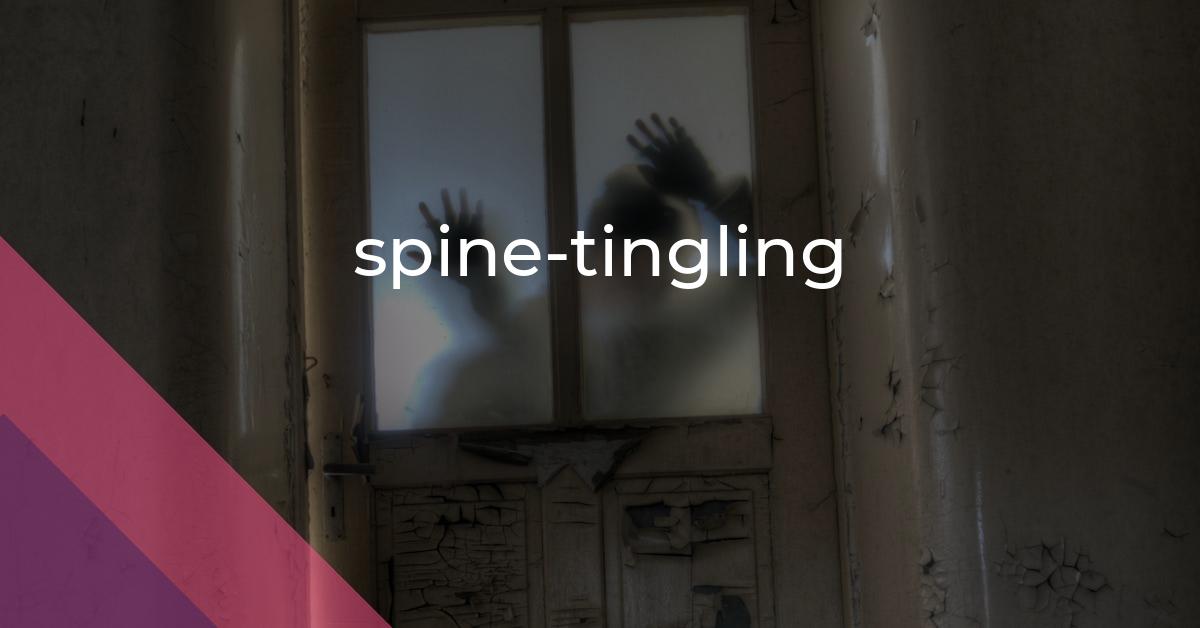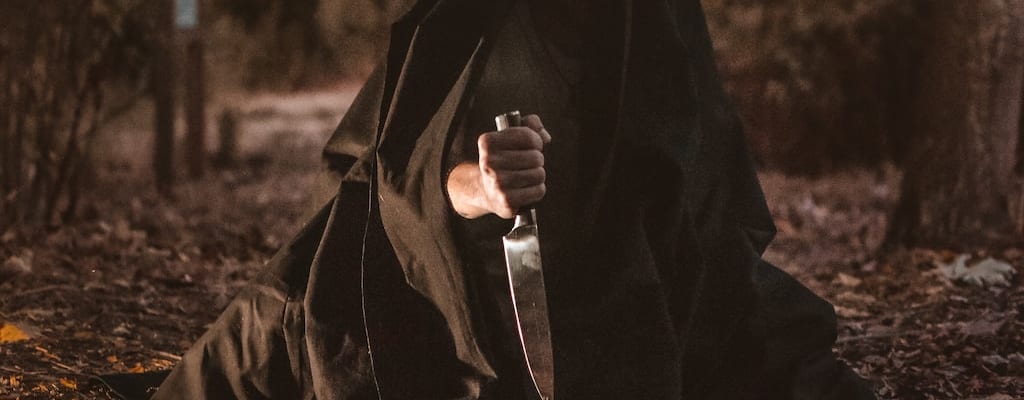spine-tingling: Idiom Meaning and Origin
What does ‘spine-tingling’ mean?
The idiom "spine-tingling" refers to something that is incredibly eerie or thrilling, causing a shiver to run down one's spine. It often describes a chilling or intensely exciting experience that leaves a lasting impression.

Idiom Explorer
The idiom "touch a nerve" means to say or do something that upsets or angers someone, usually because it reminds them of a sensitive or painful subject.
The idiom "take someone's breath away" means to astonish or amaze someone to the point of leaving them speechless or in awe.
The idiom "set pulses racing" means to excite or stimulate someone, typically by creating a thrilling or intense experience that makes their heart beat faster.
The idiom "send shivers down someone's spine" means to cause a sudden strong feeling of fear, excitement, or thrill.
The idiom "scare the pants off" means to frighten or startle someone very much, often resulting in them losing their courage or composure. The phrase suggests a sudden and intense fear that can make someone feel as if their pants are literally scared off.
The idiom "scared to death" means to be extremely frightened or afraid to the point where it feels like one could die from fear.
The idiom "scared shitless" means to be extremely frightened or terrified to the point of losing control over bodily functions. It is an intensified version of simply feeling scared.
The idiom "quake in one's boots" means to feel very afraid or scared. It is often used to describe a feeling of extreme fear or apprehension. The phrase originates from the physical reaction of trembling or shaking that one may experience when feeling scared or intimidated.
The idiom "on the edge of one's seat" means to be in a state of excitement, anticipation, or suspense, eagerly waiting for something to happen.
The idiom "on pins and needles" means to feel extremely anxious or nervous, often because of anticipation or uncertainty about something.
Electric Chills: Unveiling the Significance
The idiom "spine-tingling" is often used to describe something that is extremely thrilling, exciting, or chilling. It is derived from the physical sensation of feeling a shiver or tingling sensation down one's spine, which is often associated with a sense of fear or exhilaration. The term "spine-tingling" can be traced back to the mid-19th century and has since become a popular phrase used in various contexts, including literature, music, and film.
One possible origin of the idiom can be linked to the physiological response known as "piloerection" or "goosebumps." When a person experiences a sudden drop in temperature, strong emotions such as fear, or intense excitement, the muscles at the base of each hair follicle contract, causing the hair to stand on end. This response, known as piloerection, can also result in a tingling sensation on the skin, including the back and spine. Therefore, the phrase "spine-tingling" may have originated from the association of this sensation with feelings of fear or excitement.
The figurative use of "spine-tingling" to describe an intense emotional or sensory experience can be found in literature and poetry dating back to the 19th century. Authors often employed the term to evoke a visceral reaction from their readers, aiming to create a sense of suspense, excitement, or terror. This usage of the idiom has continued to be prevalent in contemporary writing, where it is used to captivate and engage the audience by describing something that is both thrilling and unsettling.
In addition to its literary application, the idiom "spine-tingling" has also made its way into other forms of entertainment, such as music and film. In horror movies, for example, certain scenes or sound effects are designed to elicit a physical response from the viewers, resulting in a chilling or bone-shaking experience. Similarly, in music, composers may use specific arrangements, melodies, or lyrics to create a sense of anticipation or excitement, causing listeners to feel a tingle down their spines.
Furthermore, the idiom has also been adopted in everyday speech to describe experiences that produce a similar physical and emotional response. People might use the phrase "spine-tingling" to describe a captivating live performance, a thrilling sports event, or a suspenseful moment in a book or film. It has become a common expression to convey a powerful and exhilarating experience that leaves one with a lasting impression.
The idiom "spine-tingling" originates from the physical sensation of feeling a shiver or tingling down one's spine. It has been used in literature, music, and film to describe experiences that evoke a sense of fear, excitement, or thrill. The term has gained popularity and is now commonly used in various contexts to convey a powerful and captivating experience. Its enduring usage reflects the intrinsic connection between physical and emotional responses and the way language can vividly depict such sensations. While the idiom has a known origin and established usage, it continues to hold potential for exploration and interpretation.
Example usage
1. The horror movie had several spine-tingling moments that had the audience on the edge of their seats.
2. As the ghostly figure appeared from the shadows, a spine-tingling sensation ran down my spine.
3. The eerie sound of the wind howling through the abandoned house sent a spine-tingling chill down my back.
More "Thrills" idioms
We missed the mark - nothing found.



